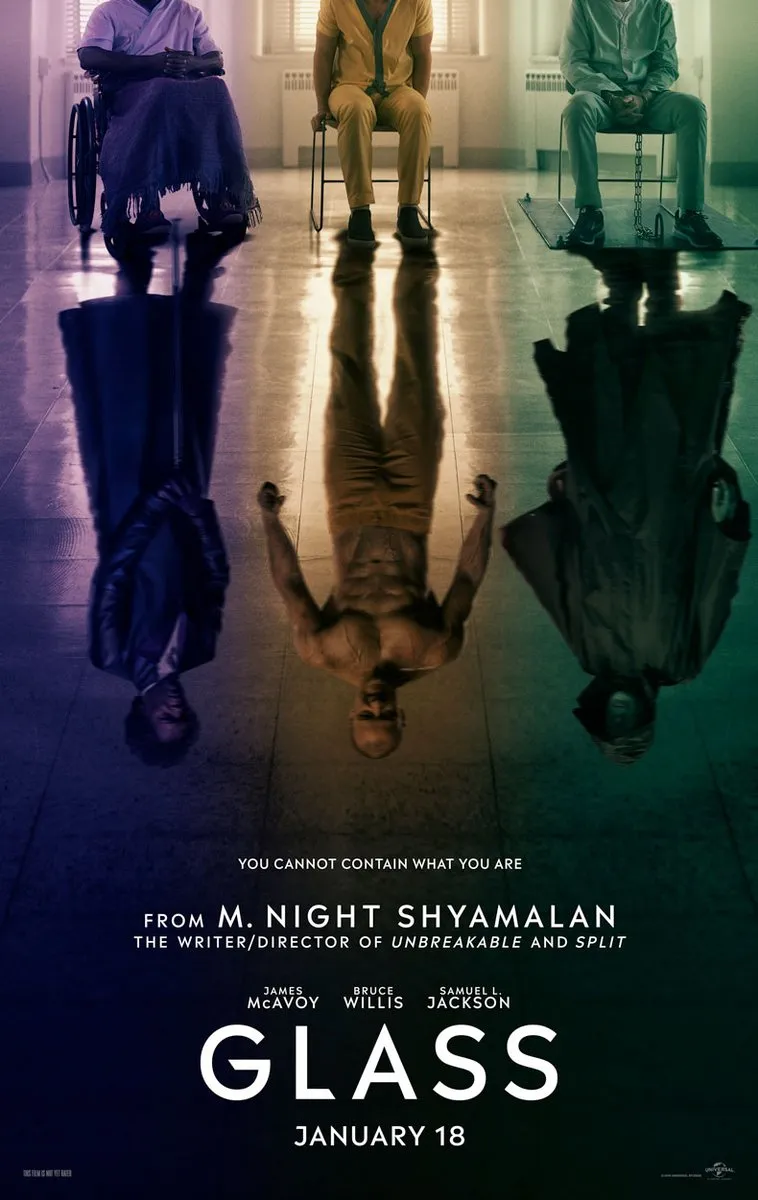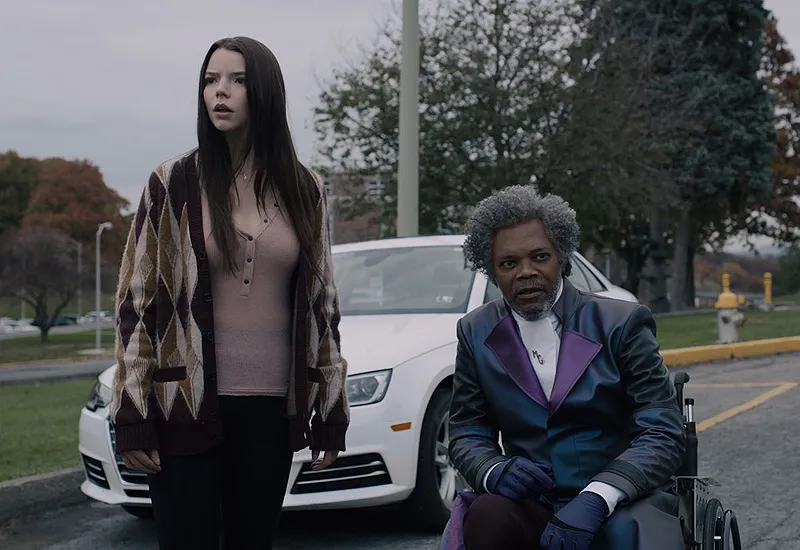During ComingSoon.net’s previous 1:1 chat with Glass mastermind M. Night Shyamalan, we had the chance to speak with him about the new movie’s controversial ending. To give our readers a chance to see the Glass ending for themselves we’ve held it off until now, so if you haven’t seen the film beware HUGE SPOILERS, otherwise read the interview below!
RELATED: CS Interview: M. Night Shyamalan on the Evolution of Glass
Along with Bruce Willis’ David Dunn and James McAvoy’s The Horde, Samuel L. Jackson returns as the title character Elijah Price, aka Mr. Glass. The power-trio will be joined by Sarah Paulson (American Horror Story) as a psychiatrist who specializes in “individuals who believe they are superheroes” and who is treating them at a mental hospital. Also starring in the film is Anya Taylor-Joy as Casey Cooke, the only captive to survive an encounter with The Beast, who reprises her role from Split. The cast is rounded out by Unbreakable’s Spencer Treat Clark and Charlayne Woodard, who reprise their roles as Dunn’s son and Price’s mother, respectively.
This riveting culmination of his worldwide blockbusters will be produced by Shyamalan and Blumhouse Production’s Jason Blum, who also produced the writer/director’s previous two films for Universal. They produce again with Ashwin Rajan and Marc Bienstock, and Steven Schneider, who will executive produce.
A Blinding Edge Pictures and Blumhouse production, Glass is now playing in theaters everywhere!
RELATED: ComingSoon.net’s Glass Review
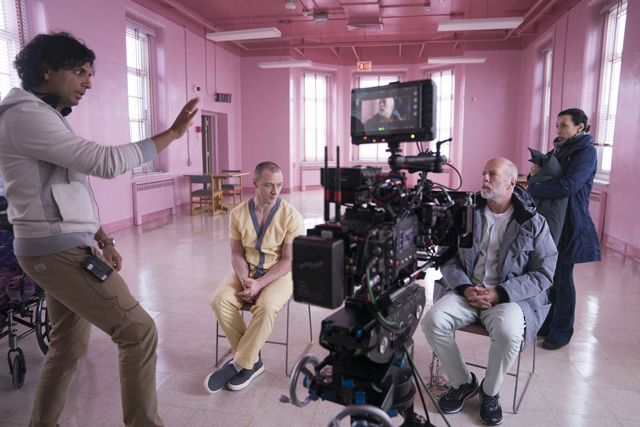
If you have not seen the film Glass but want context for the ending spoilers below: The movie essentially ends with the three main characters of Mr. Glass, The Overseer and The Horde murdered by a secret Illuminati-esque organization which includes Sarah Paulson’s Dr. Staple, as indicated by clover tattoos on their arms. We learn this society has been suppressing individuals with super powers for centuries, but Glass manages to beat them by recording the amazing physical feats of The Horde and David Dunn and having them sent out to the media after they all have perished. This essentially announces definitively to the world that there are super beings living among us.
ComingSoon.net: Decades ago when Shane Black wrote “Lethal Weapon 2” he originally killed Mel Gibson’s character. He later referred to the act as “turning away the bread cart.” The phrase meaning, “I don’t want to make any more millions on this character.” Obviously Warner Bros. did not let him do that and they made their millions on the sequels. But with “Glass” you got to turn away the bread cart in a big way.
M. Night Shyamalan: Yeah, yeah.
CS: What kind of resistance did you get from your partners at Universal and Disney?
Shyamalan: You know, not a ton. Like, a hope that we could keep going, if we wanted to keep going. But that was never the intention. The intention was to have the format of “One Flew Over the Cuckoo’s Nest,” where the main character seemingly is vanquished, and yet the spirit is unleashed. You feel the bittersweetness of it all, but yet their contribution to the world, to the story and to the members in the story is profound and goes on. So that format of “One Flew Over the Cuckoo’s Nest” was earth shattering to me. To me, that’s a paradigm shift. That’s a surprise.
CS: Because it’s not a nihilistic death. Mr. Glass, David Dunn and The Horde don’t die in vein.
Shyamalan: No, not at all. I’m huge on the bittersweetness of things.
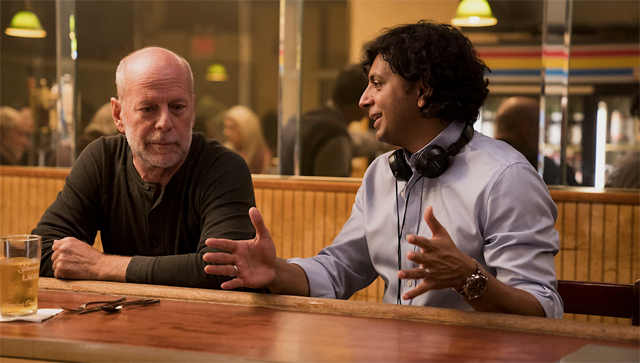
CS: You’re in a unique position because these are not corporate characters. These are your characters. And instead of using them to build a bigger franchise, you use them to ask this amazing question: “If superheroes are real, why don’t we know about them?”
Shyamalan: Yes, exactly.
CS: And you do that through Elijah, and he committed these atrocities in “Unbreakable” to bring superheroes out of the shadows, but he ultimately uncovers this group that’s far more sinister. It’s responsible for basically genocide over thousands of years. Do you see Elijah as being redeemed, or even in a sense, a very flawed hero?
Shyamalan: Yeah, I do. The audience as well really roots for him. I mean, you see even the carnival scene, it’s all sympathy. And he has a weird, weird mentality of it. He has a little bit of anger towards those that are normal, and if he was in therapy he would admit that. But the idea is also that he’s going crazy a little bit because he’s like, “Maybe I’m making this up. The world didn’t play out the way I thought. David didn’t unleash the whole world and everything’s the same as it was and how could it be that there’s only three of us?” He’s starting to doubt. You root for a person like that.
CS: One of the big themes of this film is dealing with the repercussions of superheroes in the real world. Even though the film has a sense of finality, what sort of problems do you think people with these kinds of abilities like your lead trio would cause on a societal level if they’re suddenly sprung out in the open?
Shyamalan: I don’t know if you read the book “Sapiens”. Have you ever read “Sapiens”?
CS: No.
Shyamalan: It’s fantastic. It’s just telling you about how we all came to be, how the culture had come to be this way and how polytheistic religions actually were non-violent. They were like, “Hey, you believe what you want and I’ll believe what I want and everybody believes.” But when we get into monotheistic, which is Jesus, Allah, things like that, and you better believe it, then it started to become like, you know, what would it be like if people we knew -your uncle, my aunt- had something extraordinary about them that started to emerge, that we became a polytheistic world? They were talking in this book about how the Christian religion still embraces polytheism in this way because that’s the old way with saints by saying, “Oh, this is my saint. Saint Andrews is mine, this is that, that and that, Saint Bridget’s mine.” That kind of thing. So they got to be their own individual versions. So from my village, there’s a lady who can do acts that represent us and we feel special because of that. What would happen? Would it become a polytheistic world again? But it’s one of us. It’s one of us that we think so much of, that become our idols. What I was really juxtaposing super subtly, hopefully, was religion versus comic books, and the juxtaposition of those two stories. Modern religion as monotheistic religion saying the power is outside of us and we’re greatly flawed, whereas comic books say the flip, which is we just need an incident, a spider, a gamma ray, whatever it is, and something extraordinary will come out of you. Those kind of stories that are self agency stories ring more true to me than the other stories. They just do. And obviously, they ring true to other people as well.
Glass (2019)
-
Glass (2019)
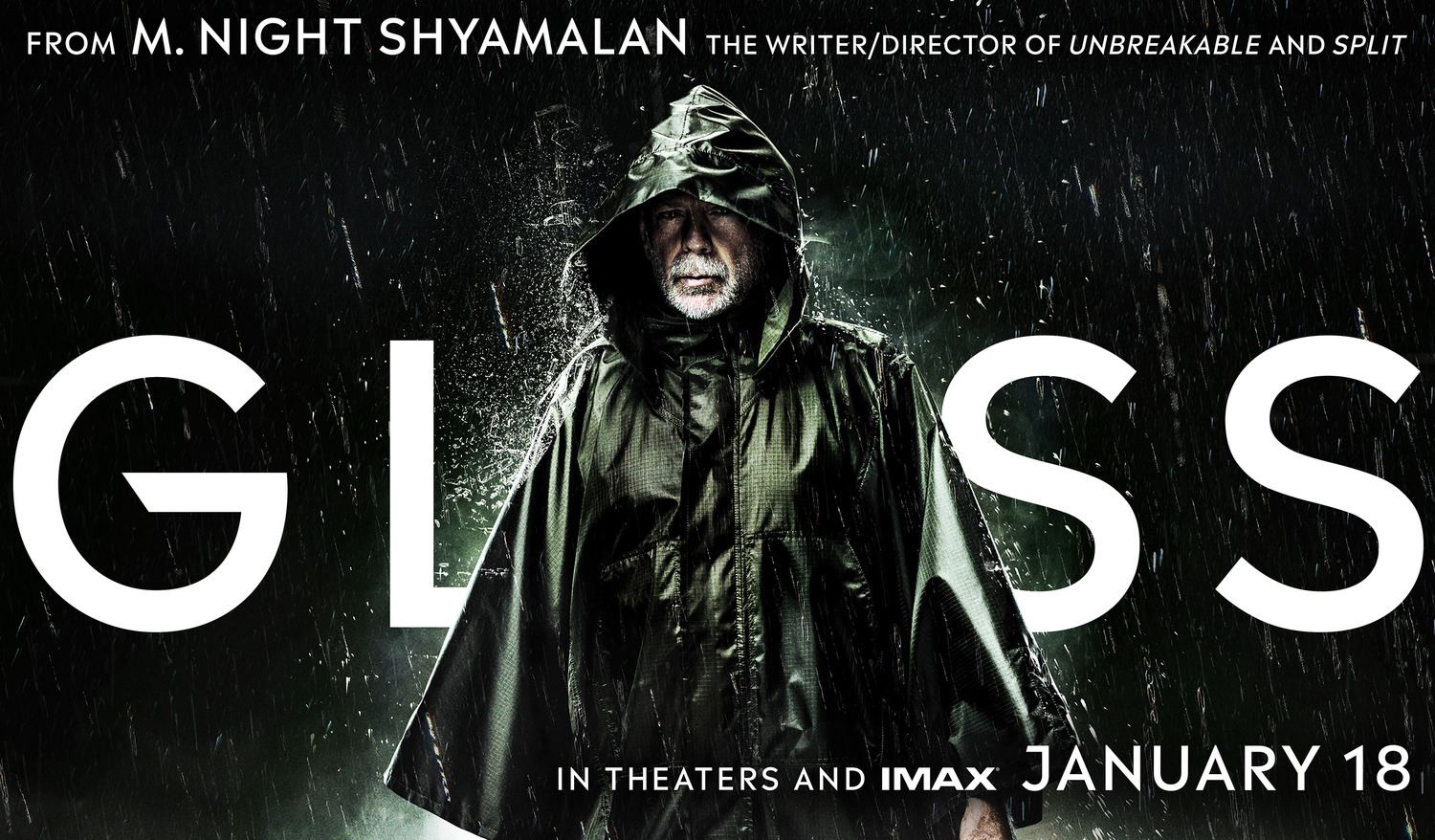
-
Glass (2019)

-
Glass (2019)
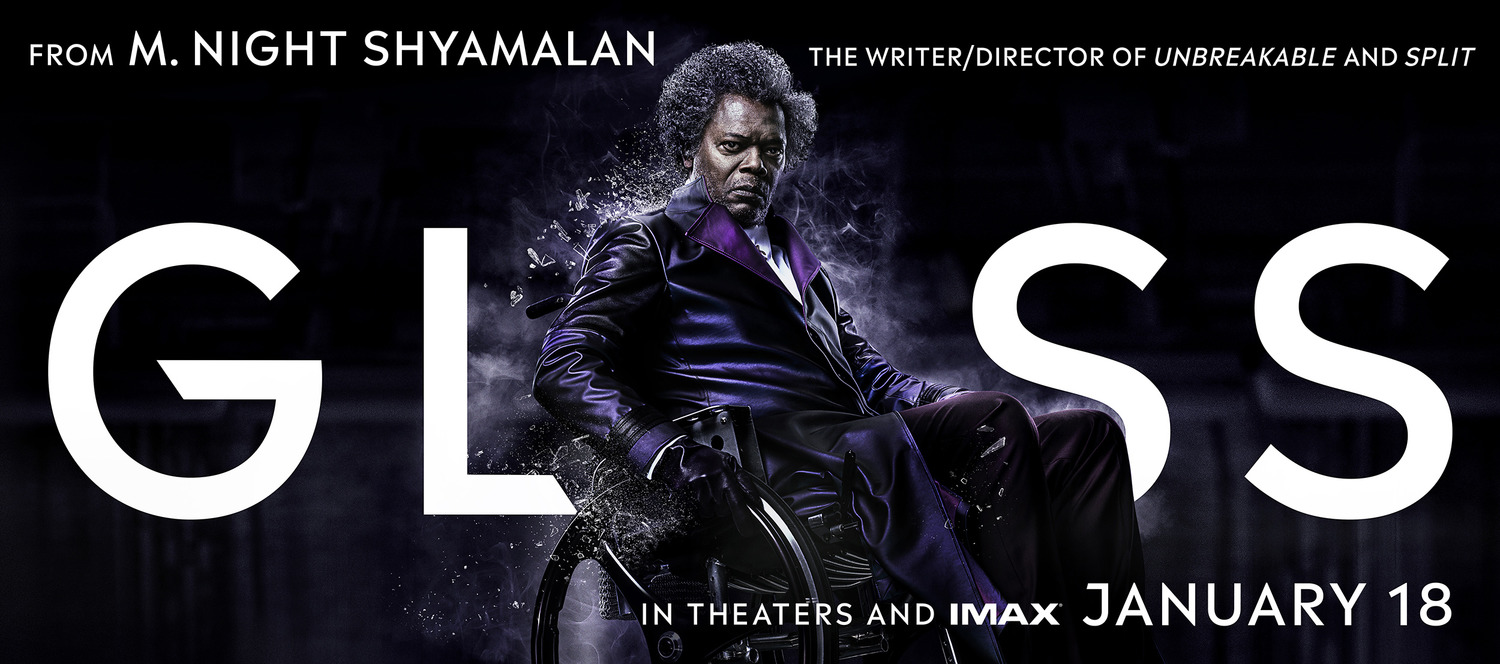
-
Glass (2019)
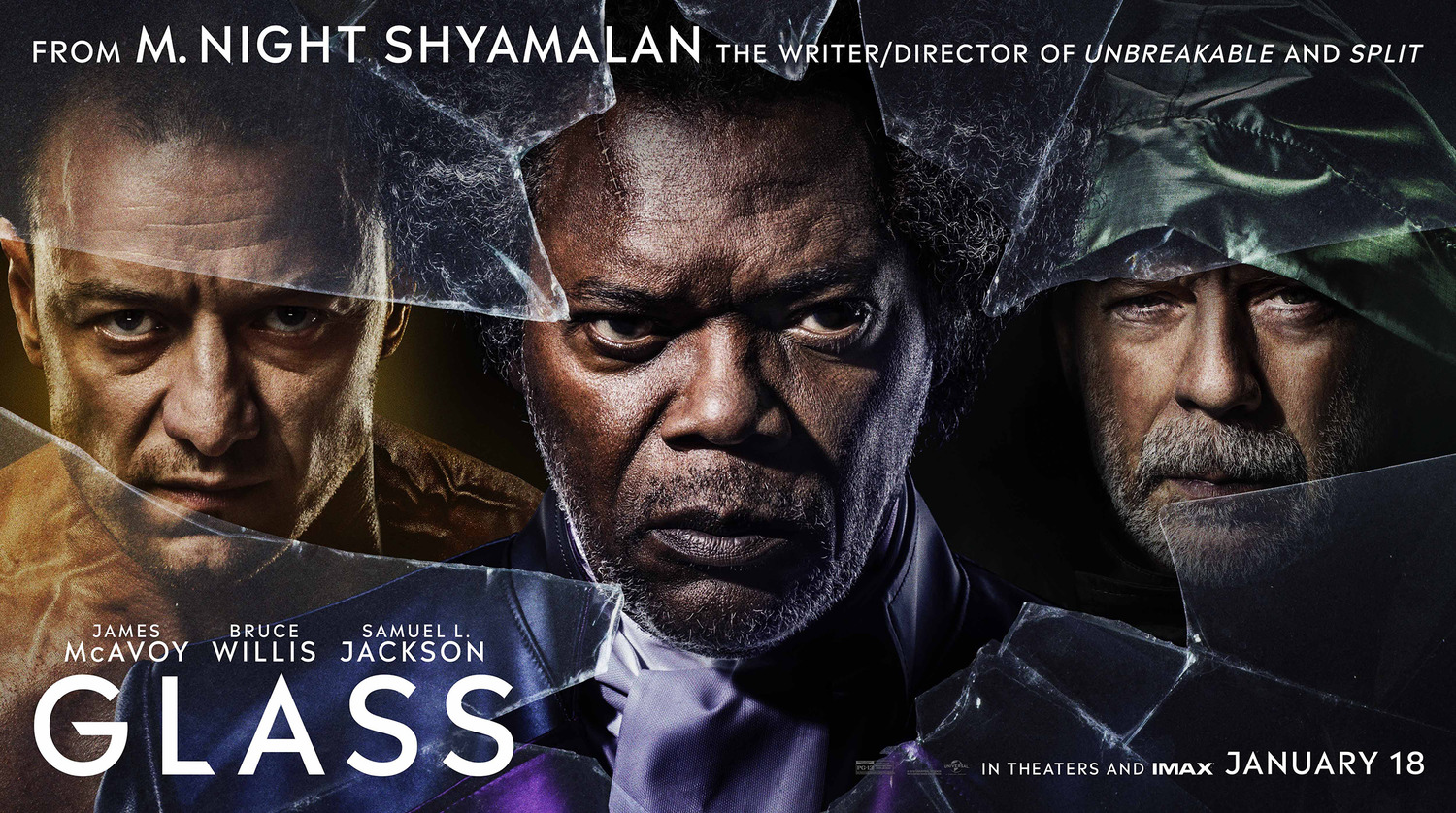
-
Glass (2019)
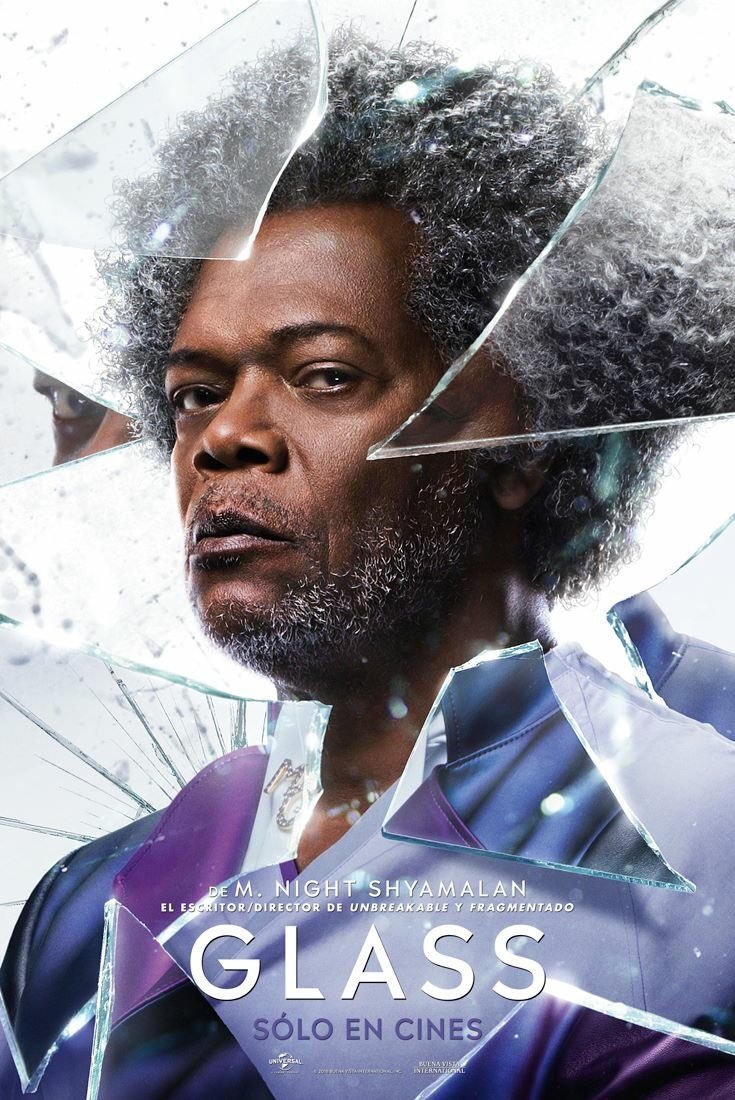
-
Glass (2019)
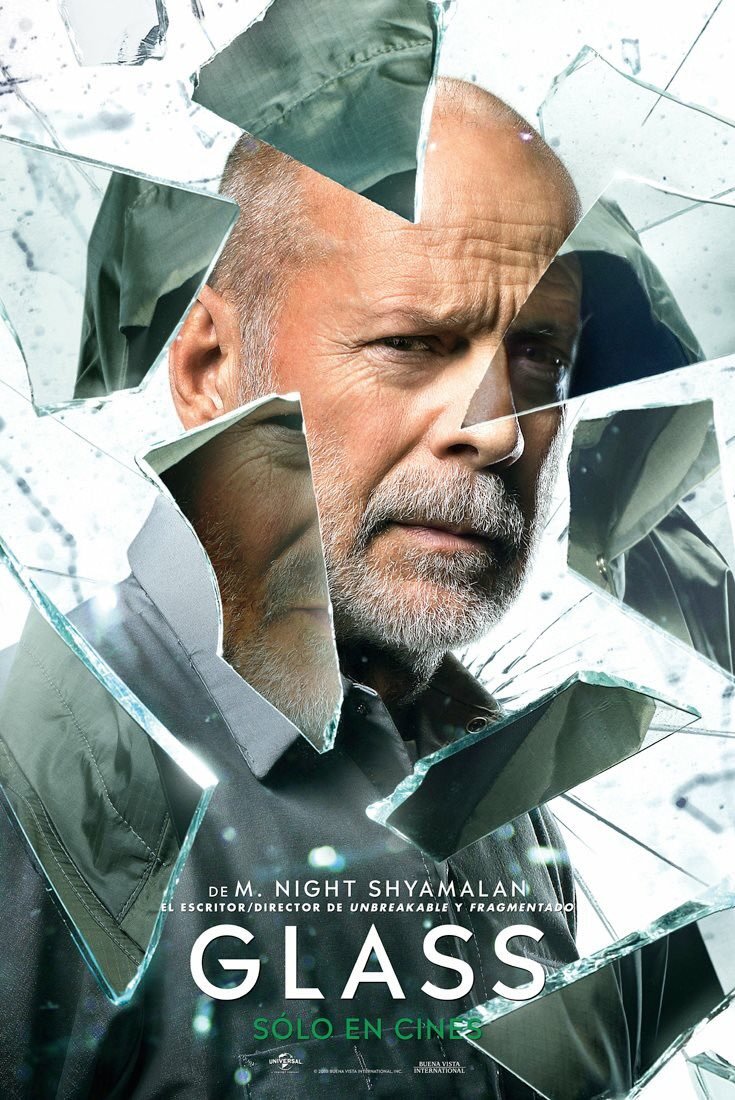
-
Glass (2019)
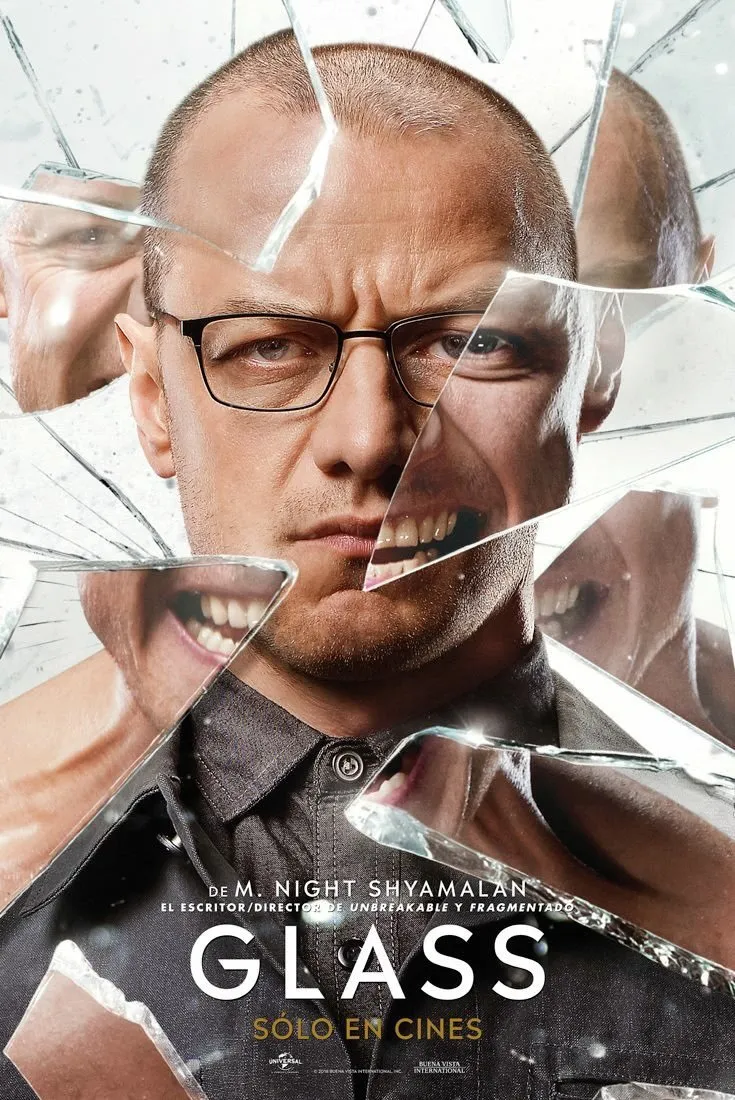
-
Glass (2019)
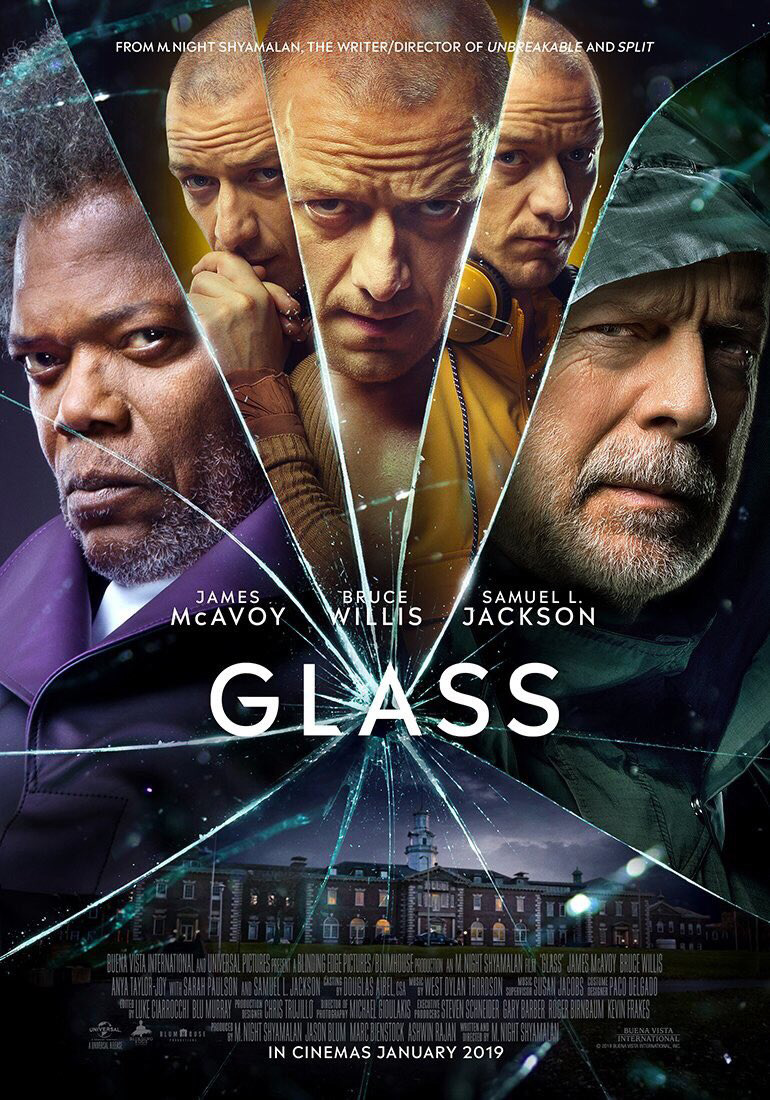
-
Glass Comic-Con poster
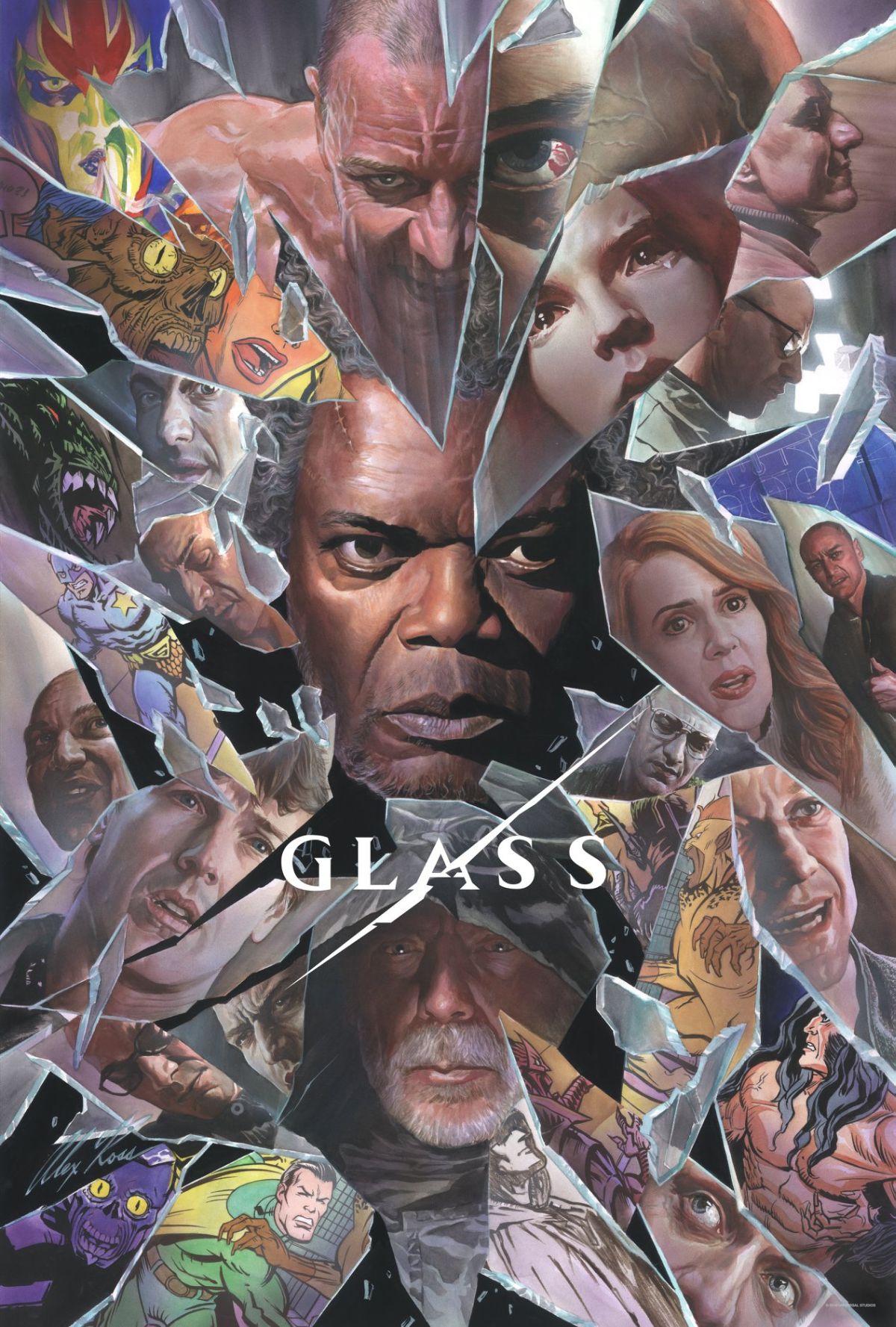
-
Glass (2019)
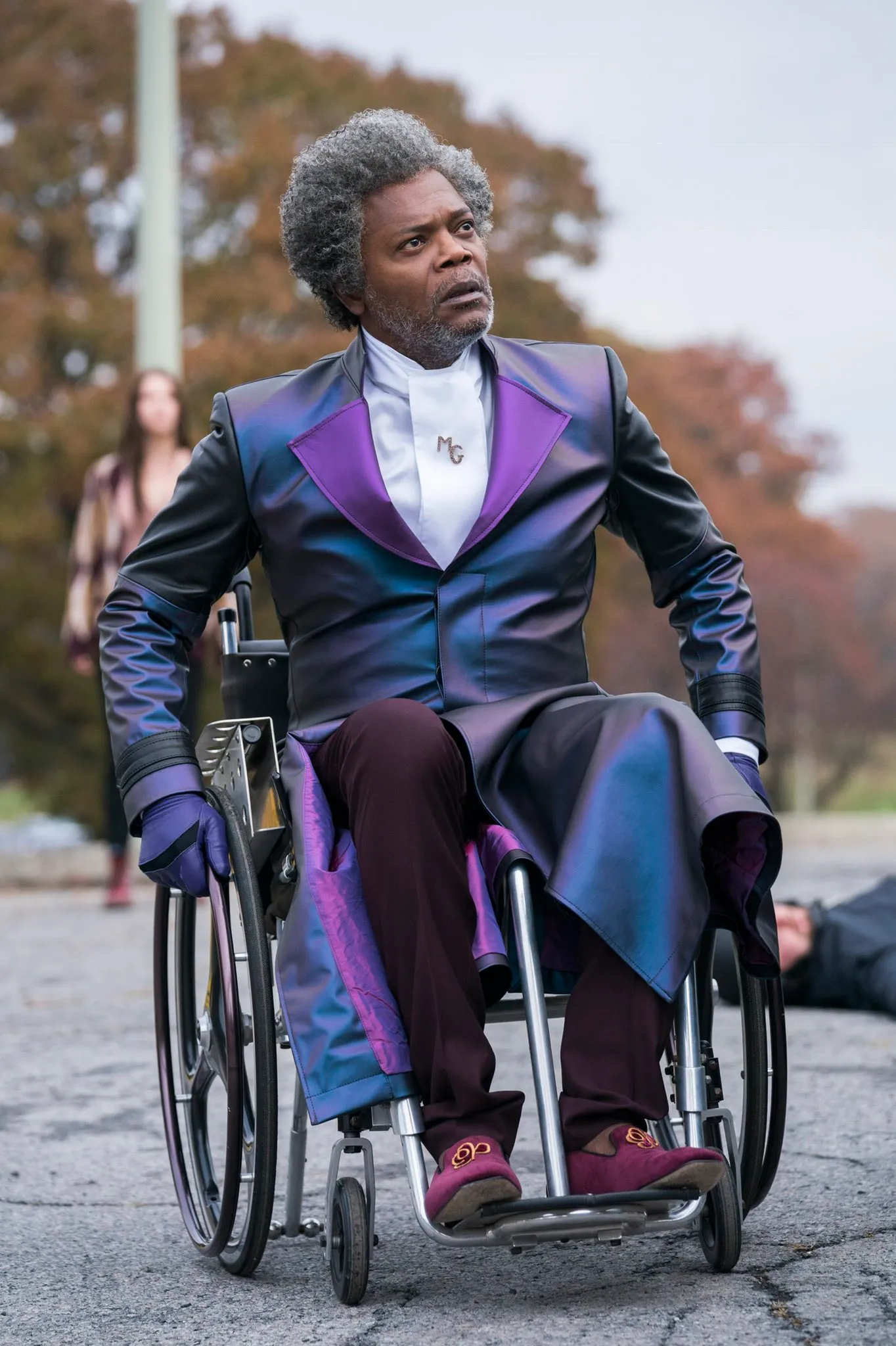
-
Glass (2019)
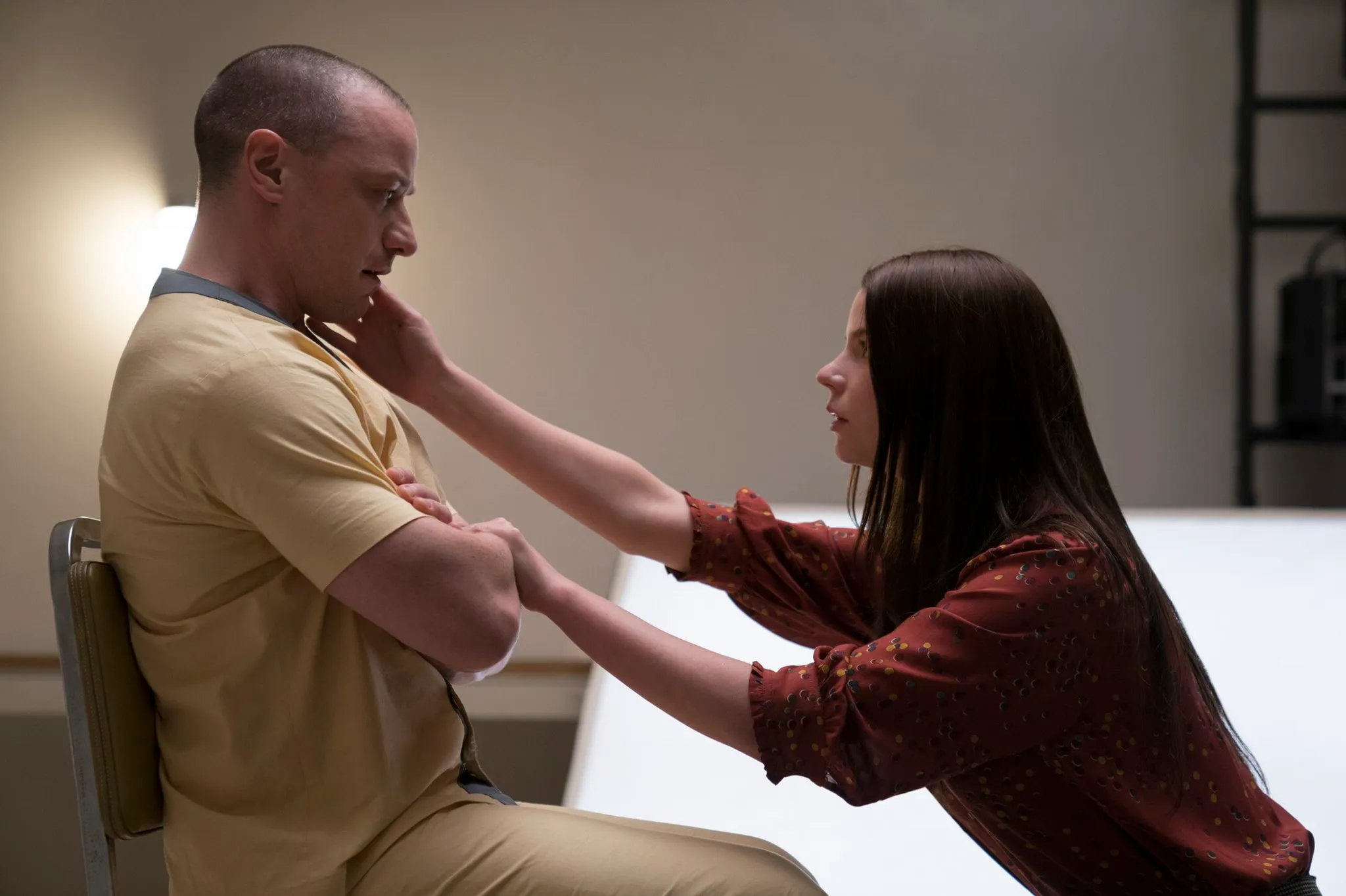
-
Glass (2019)
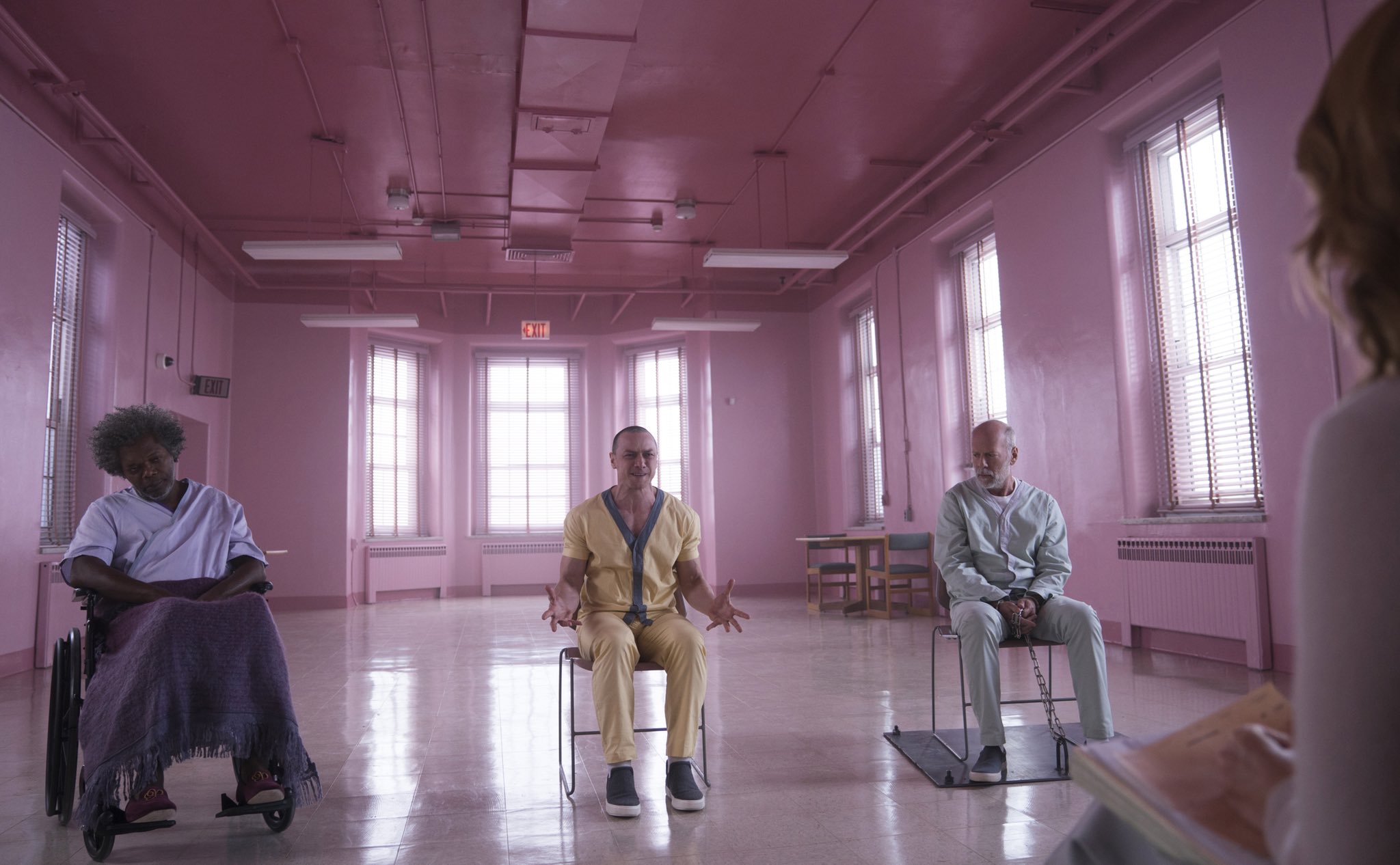
-
Glass (2019)
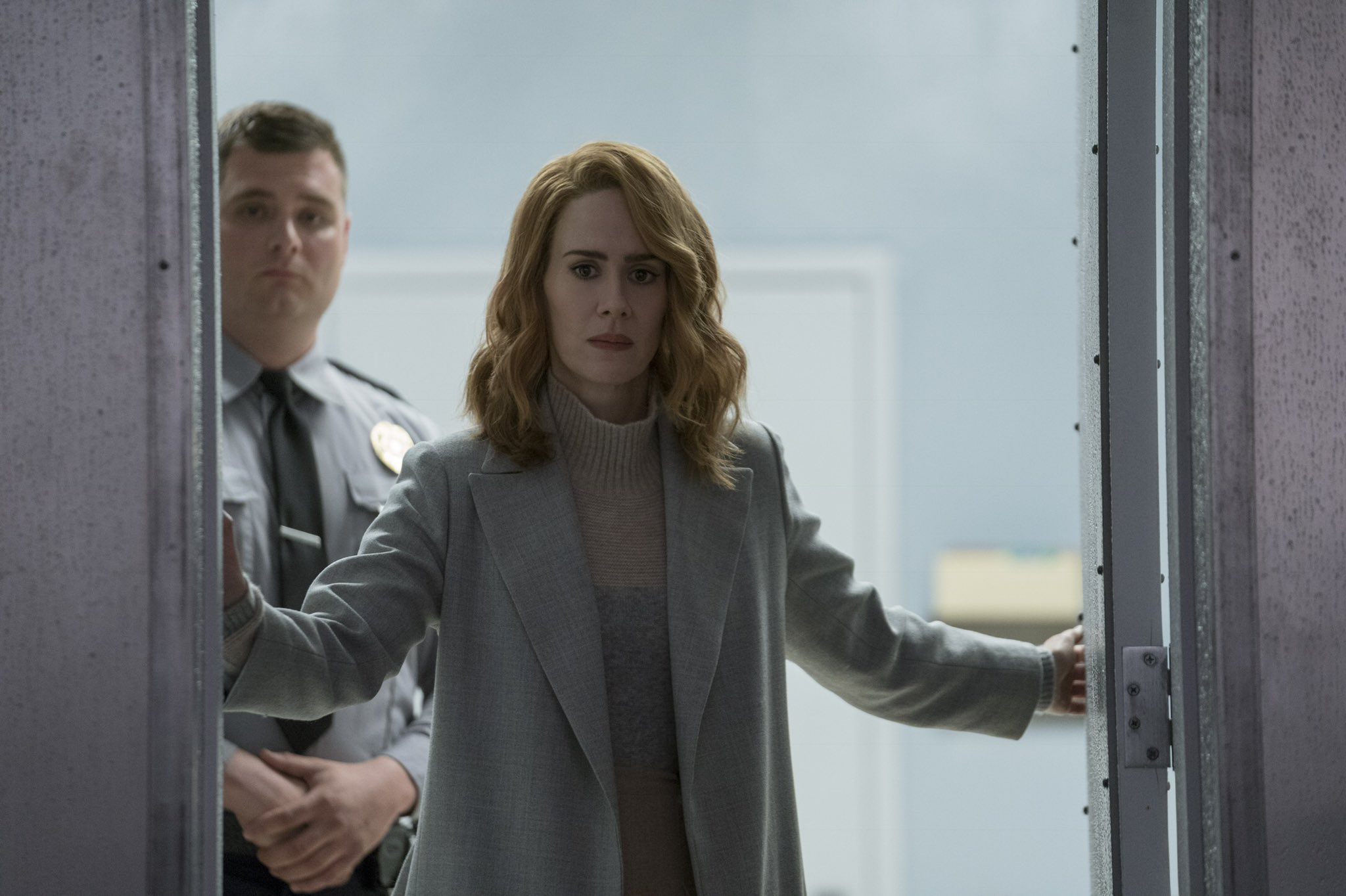
-
Glass (2019)
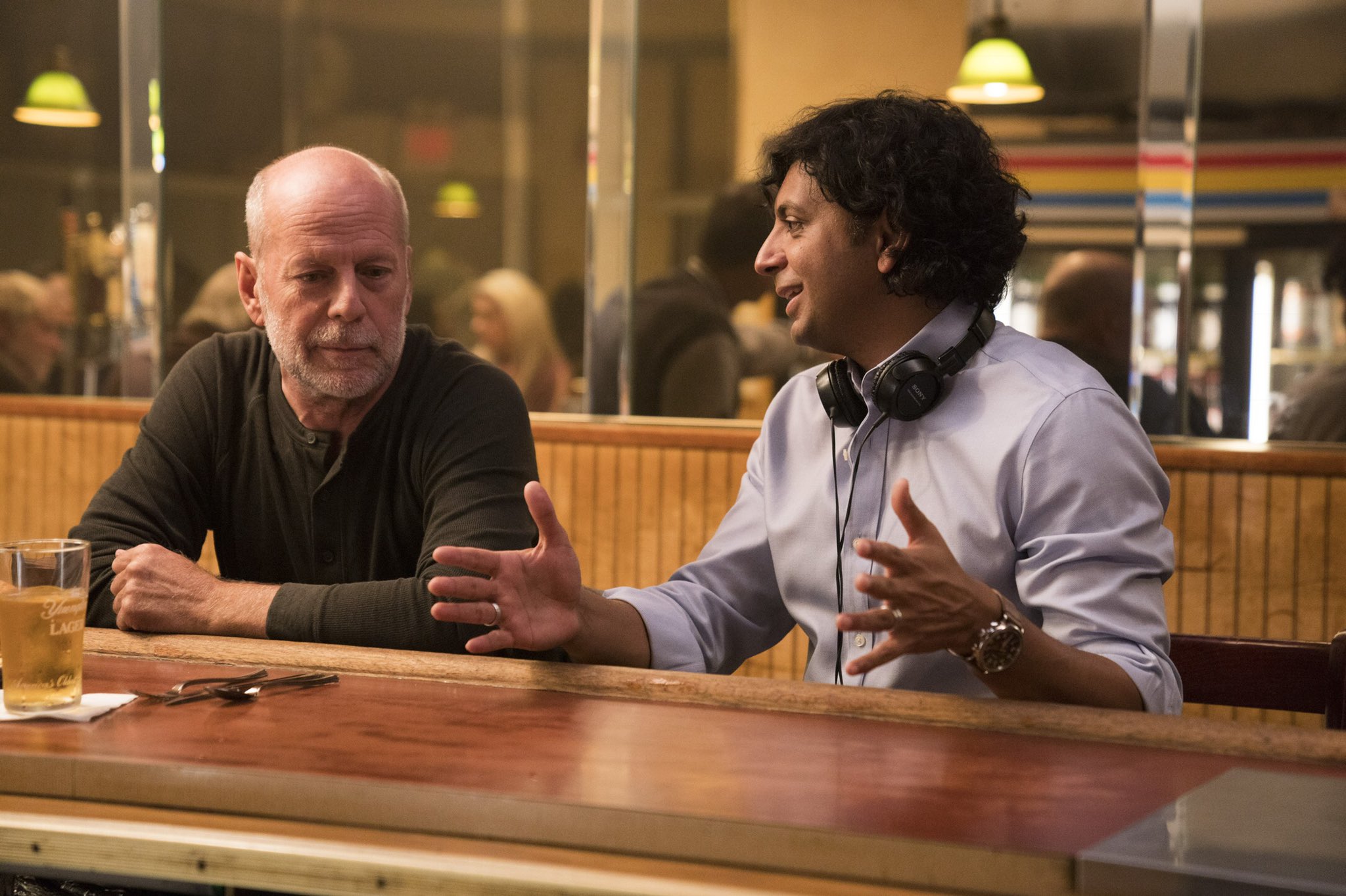
-
Glass (2019)
